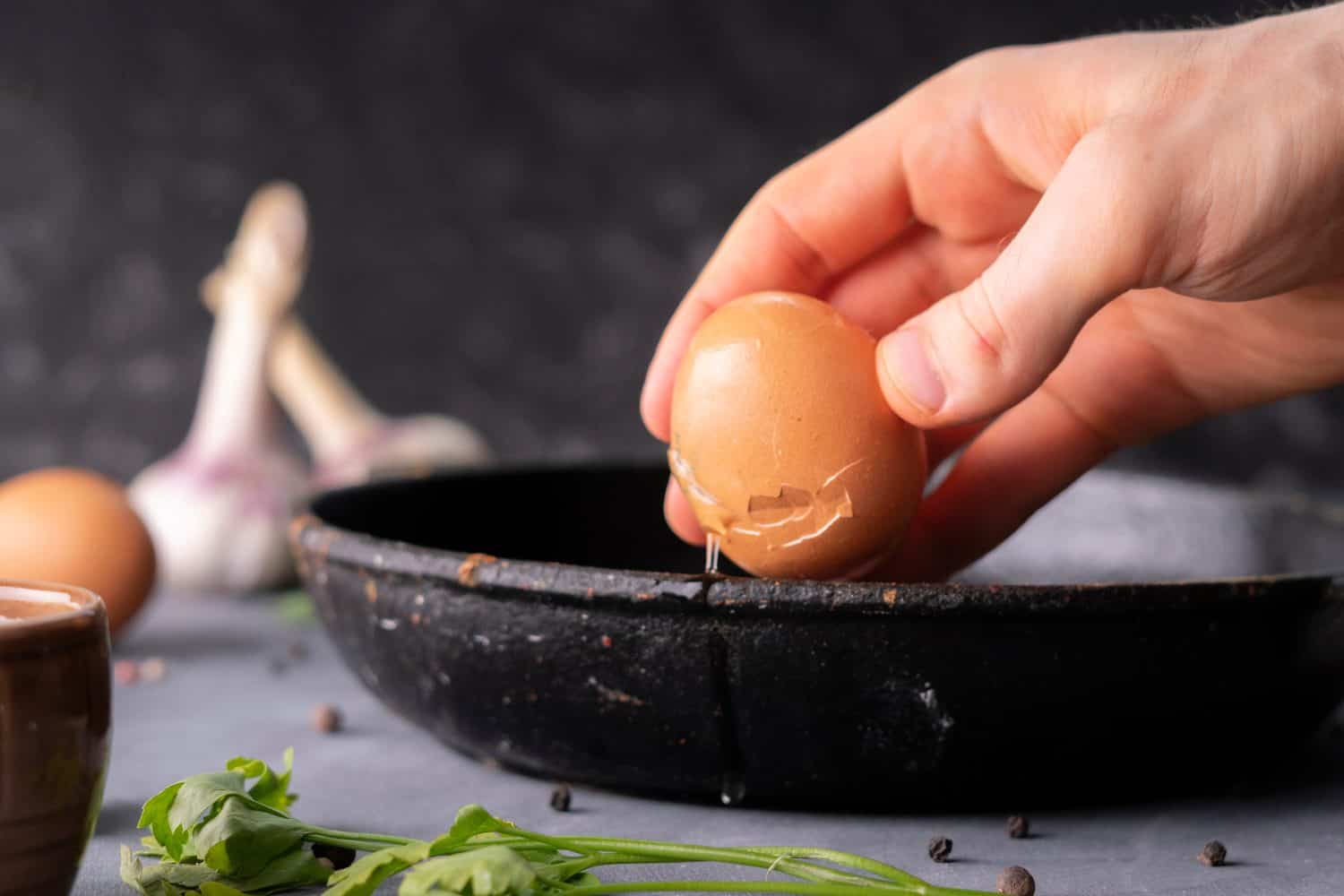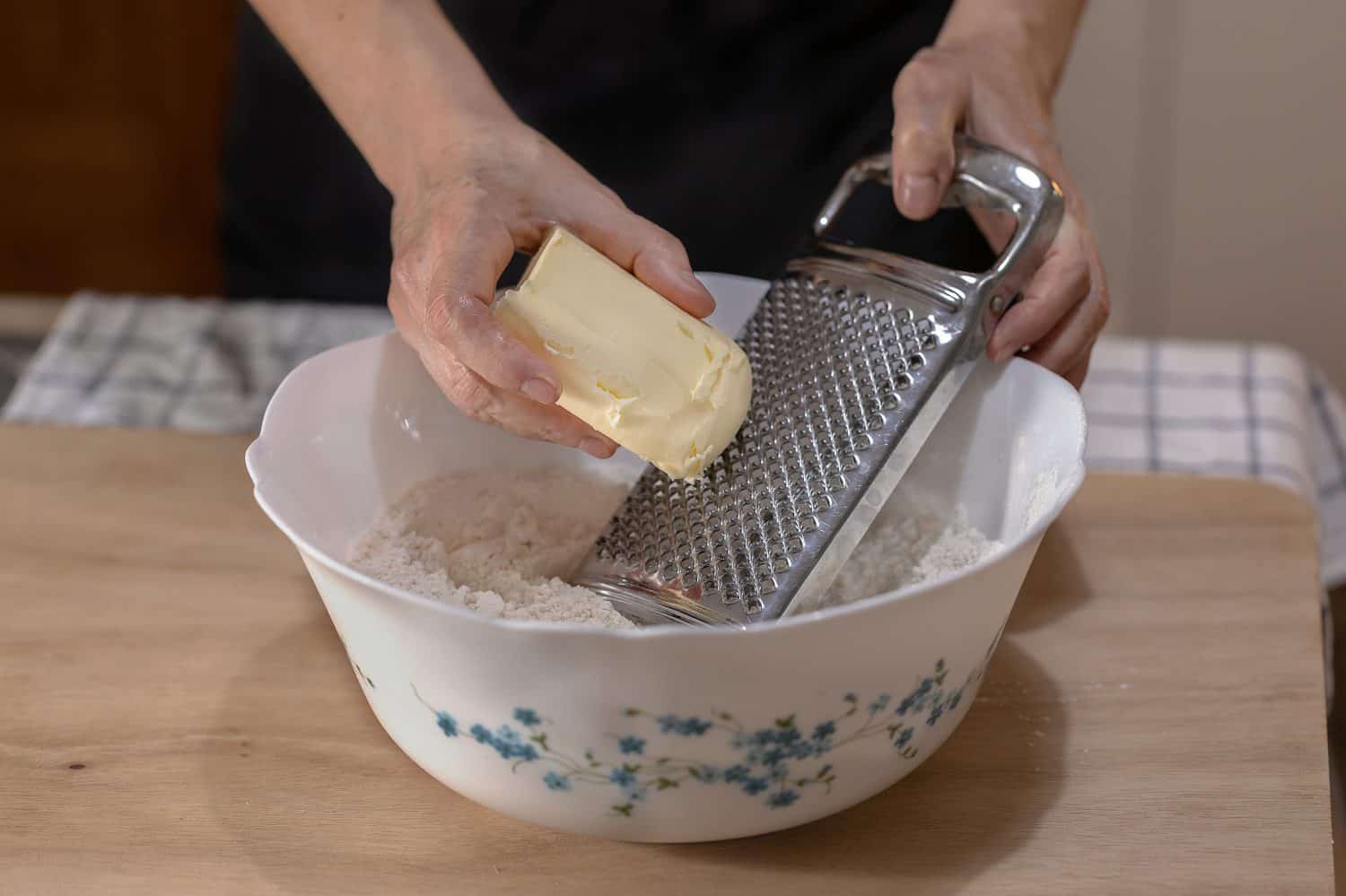Over the past decade or so, thanks to sites like Buzzfeed and endless creators looking for engagement on TikTok, there’s been a flood of cooking “hacks” that promise to not only make it easier to cook your favorite foods but also completely change your life. Needless to say, most of these hacks are either simple techniques that have been around for decades (if not centuries) and are now being presented as new, or they’re actually useless at best or make cooking more complicated at worst. But in reality, there are actually a lot of “hacks” out there that aren’t gimmicky; they’re just classic cooking techniques that even professional chefs swear by, and they really will make your life easier.
It’s true that there’s no shortage of completely dumb cooking “hacks” out there. If anyone tells you that it makes sense to cook anything in your dishwasher, for instance, run the other way. Your hands will always be the best way to separate eggs (not plastic water bottles or any other contraption). If you’re looking to cut cherry tomatoes in half, just take two minutes and cut them in half; trying to wrangle two plastic container lids is more trouble than it’s worth. Don’t use a cooling rack to dice avocados; you’ll just have a cooling rack to clean.
In reality, most dumb “hacks” are simply trying to replace basic culinary skills. Learning how to use a knife in the kitchen is an important skill, and just because something takes a few minutes to chop doesn’t mean that it’s inconvenient or taking too long. You don’t need hacks to properly cook eggs; all you need is technique. Just have some patience, take your time, enjoy your time in the kitchen, and work on improving your skills, and no silly “hacks” will be necessary.
But that doesn’t mean that there aren’t some legitimately useful kitchen hacks. Keep these useful cooking tips in your back pocket and they’ll definitely come in handy. You’ll be mastering these challenging foods to cook in no time at all.
Easily Peel a Garlic Clove
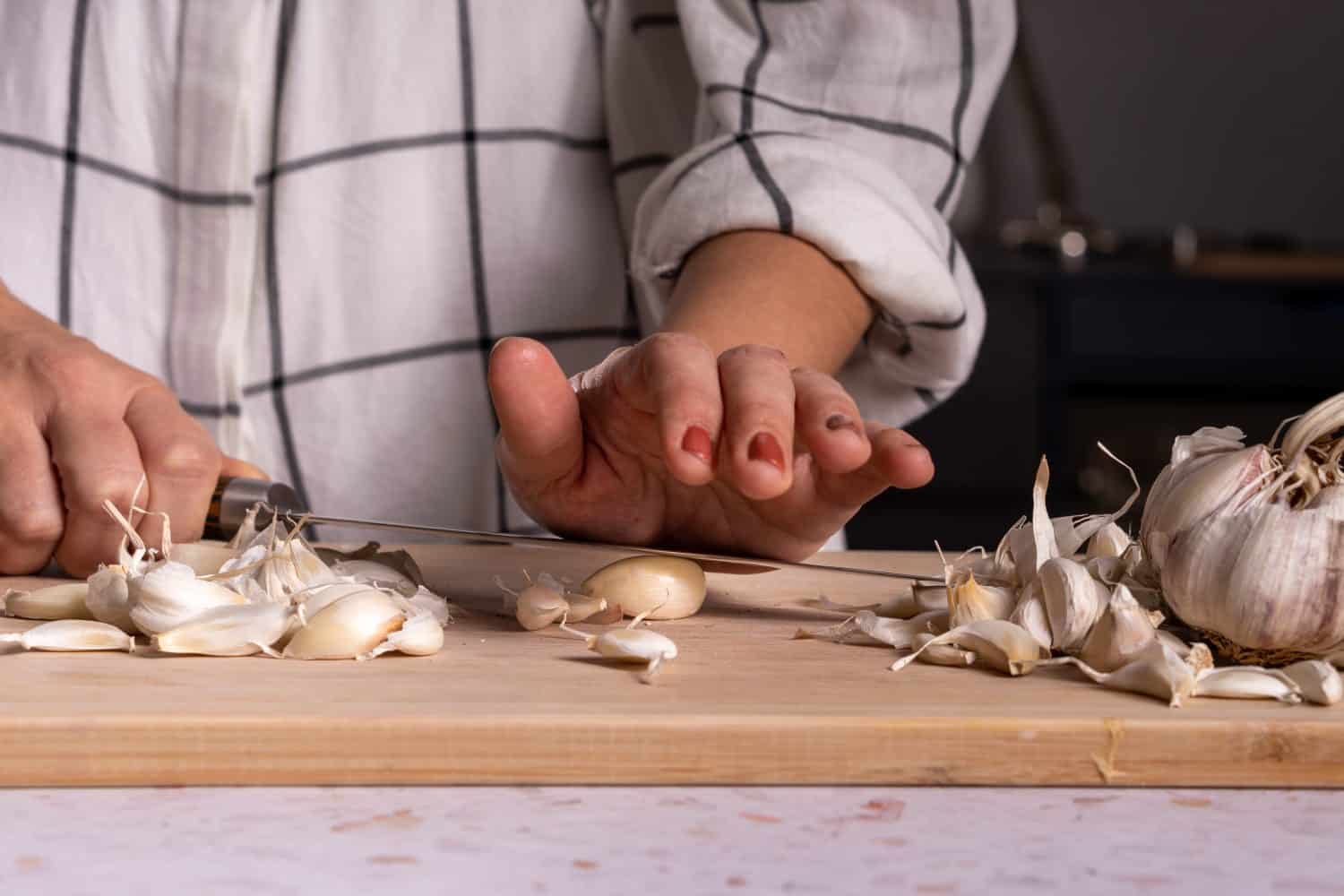
Instead of trying to peel the thin skin off of a garlic clove (or wrangling an unwieldy garlic press), just smash the whole clove on a cutting board with the side of a knife using the heel of your palm. The clove will be crushed and easy to slice, and the peel will come right off.
Keep Your Greens Fresh

Greens tend to go bad quickly when moisture presses against them, causing them to rot. Wrap your lettuce, greens, and other herbs in a paper towel and store them in an open plastic zip-top bag. This will help absorb the excess moisture and keep them fresh for longer.
Prevent Pasta Boil-Overs
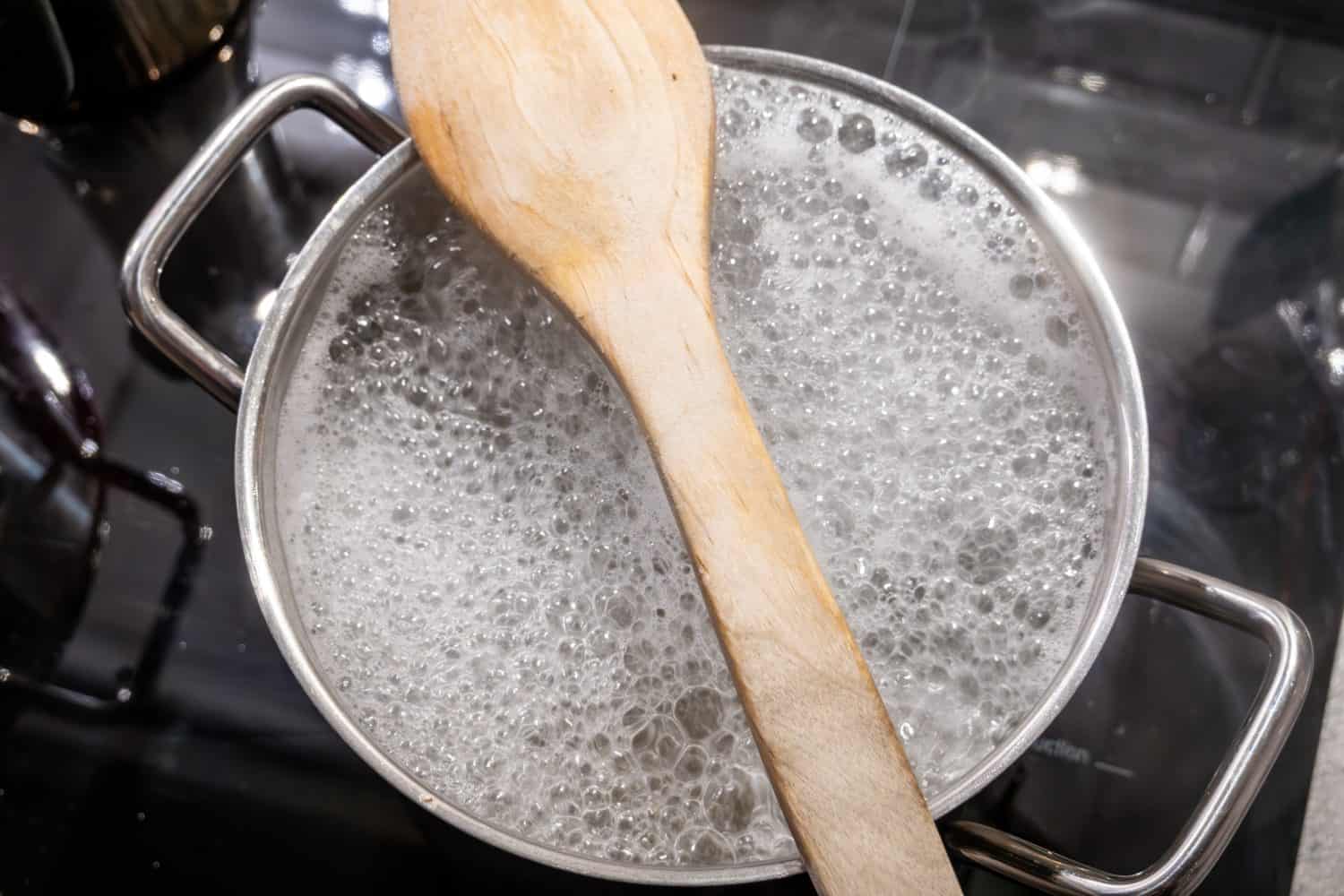
The easiest way to prevent pasta water from boiling over (if you’re not able to keep a constant eye on it) is to place a wooden spoon over the top of the pot as the pasta cooks. This will help break up bubbles before they can accumulate enough to boil over the rim of the pot.
Bring Stale Bread Back to Life
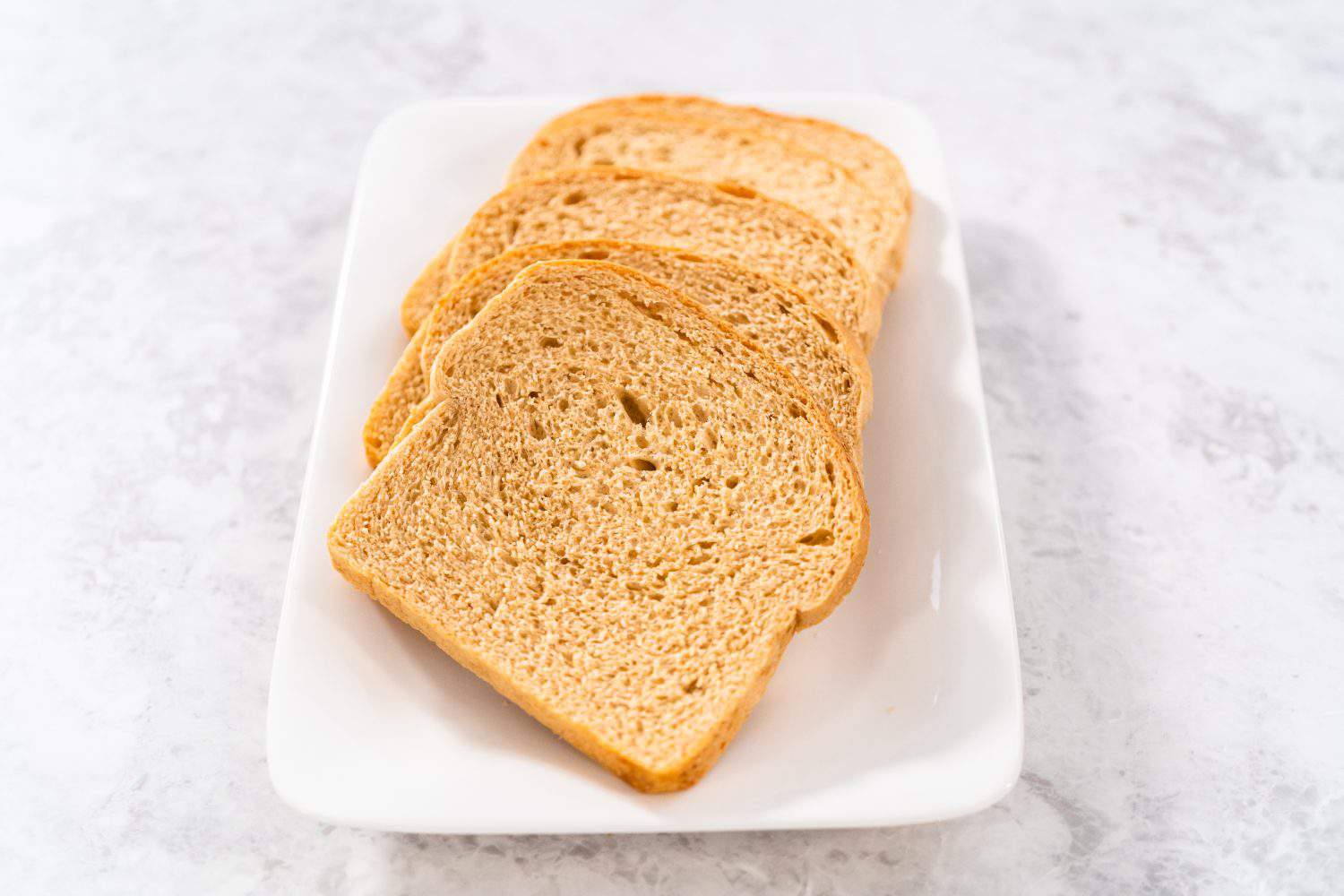
If you have stale rolls or other unsliced bread, you can easily bring it back to life by briefly running it under water and sticking it into a 350-degree oven for 10 minutes or so. The water is reabsorbed into the bread and the heat steams it from the inside, rendering it good as new.
Keep Herbs ‘Fresh’ By Freezing Them
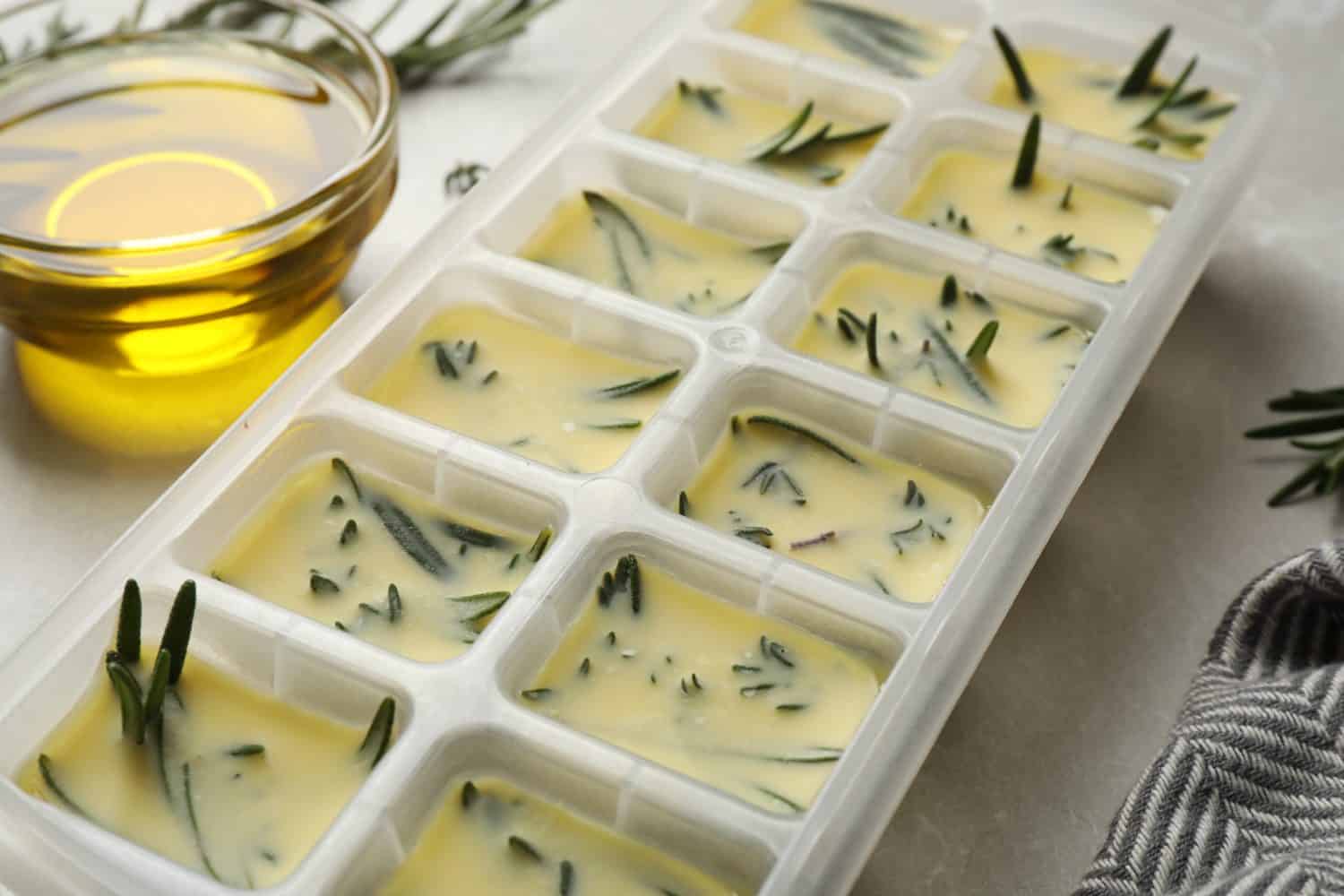
If you have herbs that are starting to go bad, chop them up and freeze them in ice cube trays with olive oil or water. You can add them straight into dishes in a pinch.
Ripen Bananas Quickly
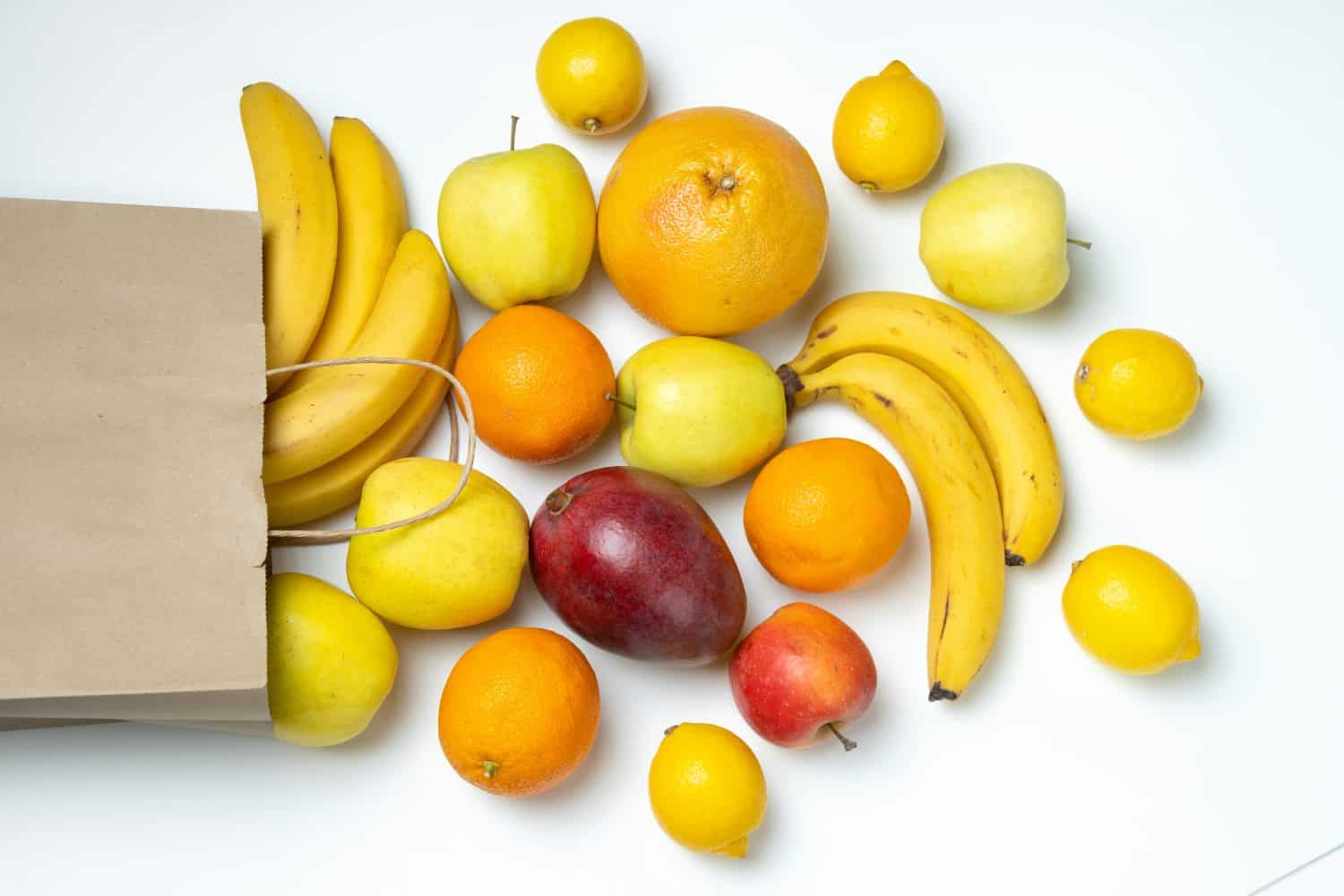
If you have some bananas that you need to ripen quickly, place them in a paper bag with an apple. The ethylene gas from the apple will help ripen the bananas, and vice versa: If you have pears, peaches, or another fruit that you want to quickly ripen, put them in a paper bag with a banana that’s starting to become overripe.
Easily Fish Out Broken Eggshells
If you’re making scrambled eggs and a bit of eggshell falls into the bowl, use another eggshell to grab hold of it and fish it out.
Prevent Brown Sugar From Going Hard
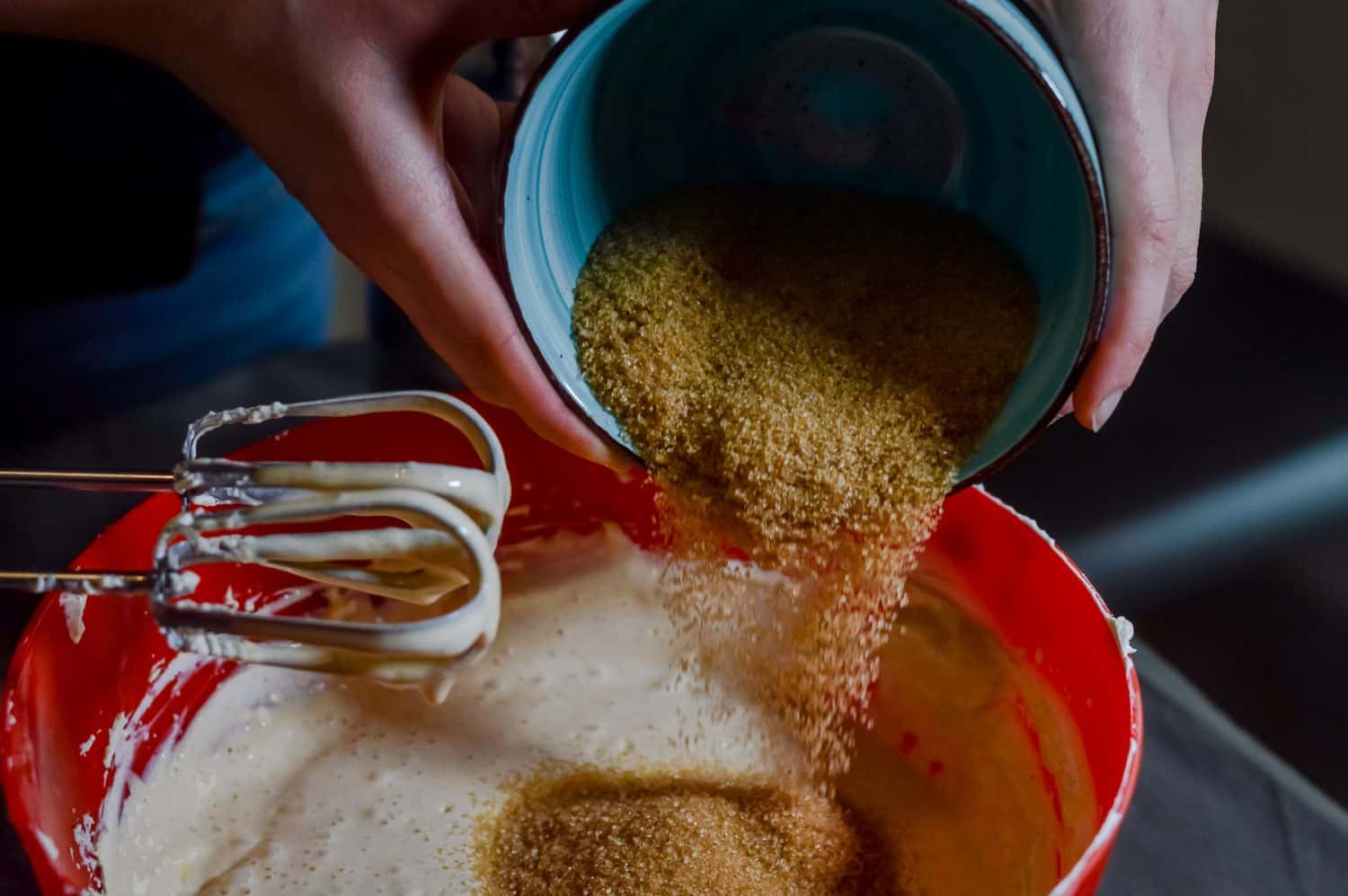
Brown sugar can easily turn into a brick if stored for too long, and this is because of a lack of moisture. In order to keep it easily scoopable, transfer it into a zip-top bag with a slice of bread or a couple of marshmallows, which will prevent it from drying out.
Easily Peel Ginger
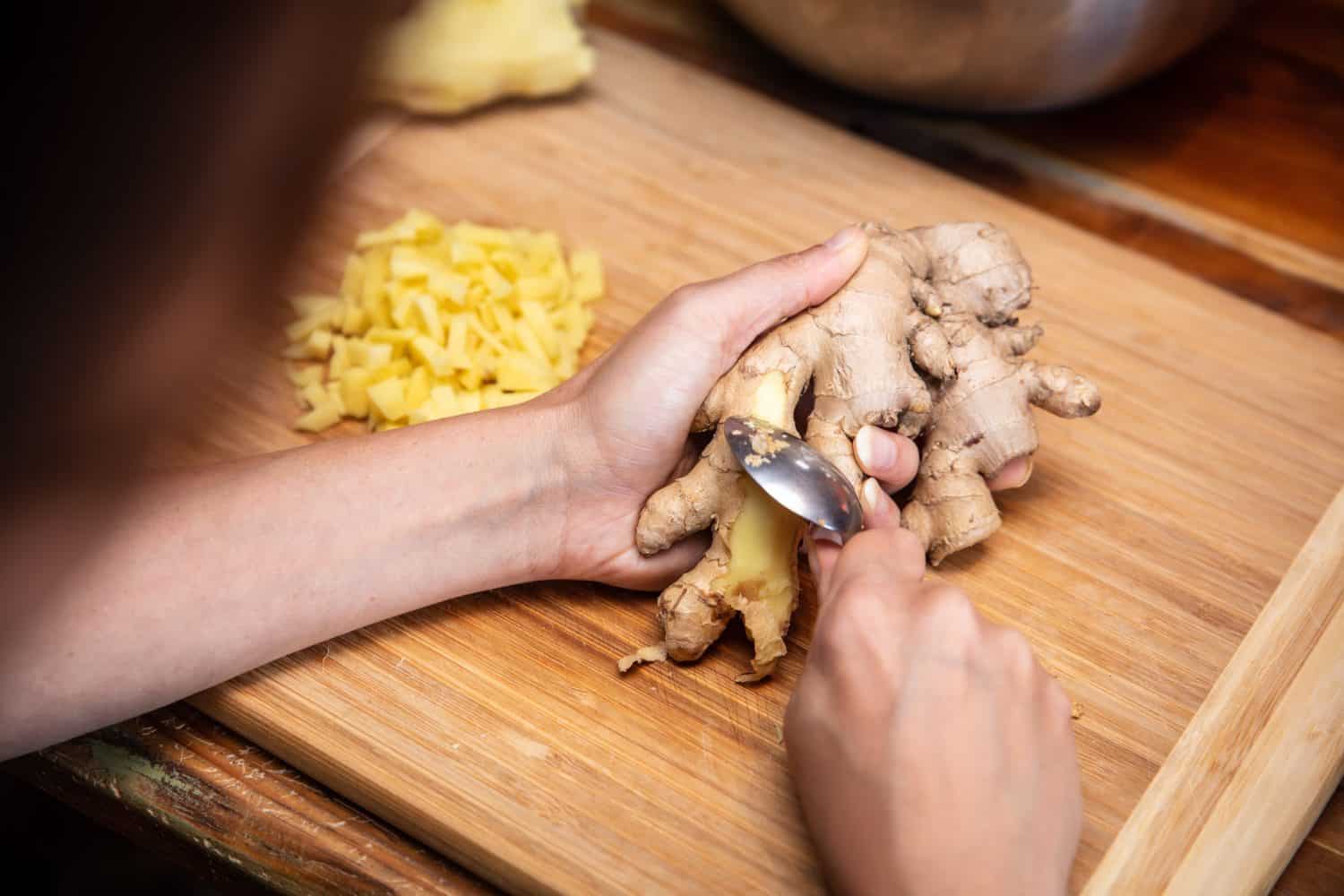
Instead of using a knife to trim the skin off an unwieldy chunk of ginger, use a spoon to scrape it off without wasting too much of the ginger itself.
Keep a Cut Avocado From Going Brown
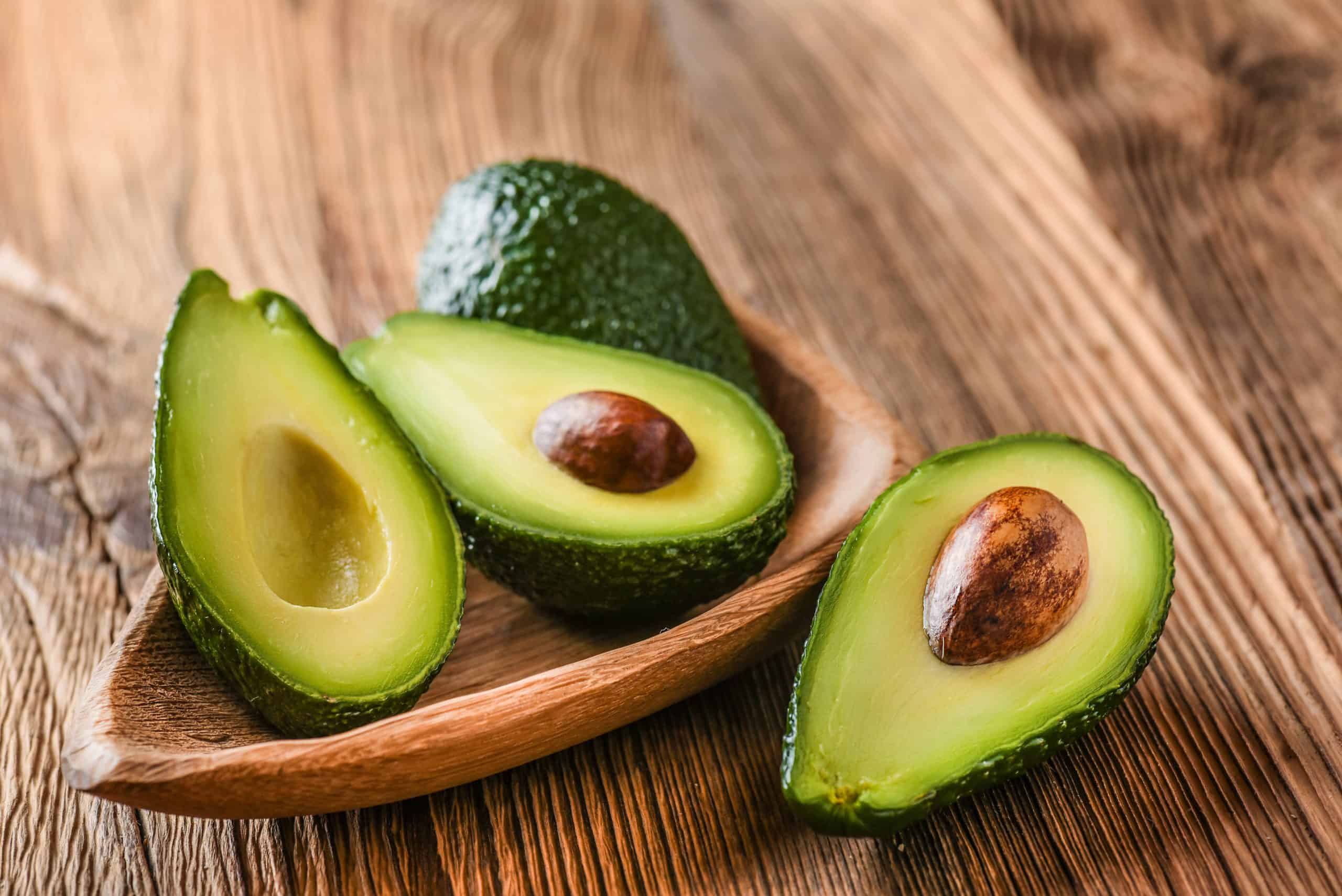
Acid will prevent avocados (and other fruits) from going brown, so sprinkle the cut avocado with lemon or lime juice before storing it in an airtight container. Also, don’t remove the pit until you’re ready to use it.
Make Your Own Buttermilk

If a recipe calls for buttermilk but you don’t want to go out and buy a container, add a tablespoon of lemon juice or vinegar to a cup of milk and let it sit for five minutes. Voila, buttermilk.
Save Leftover Wine For Cooking
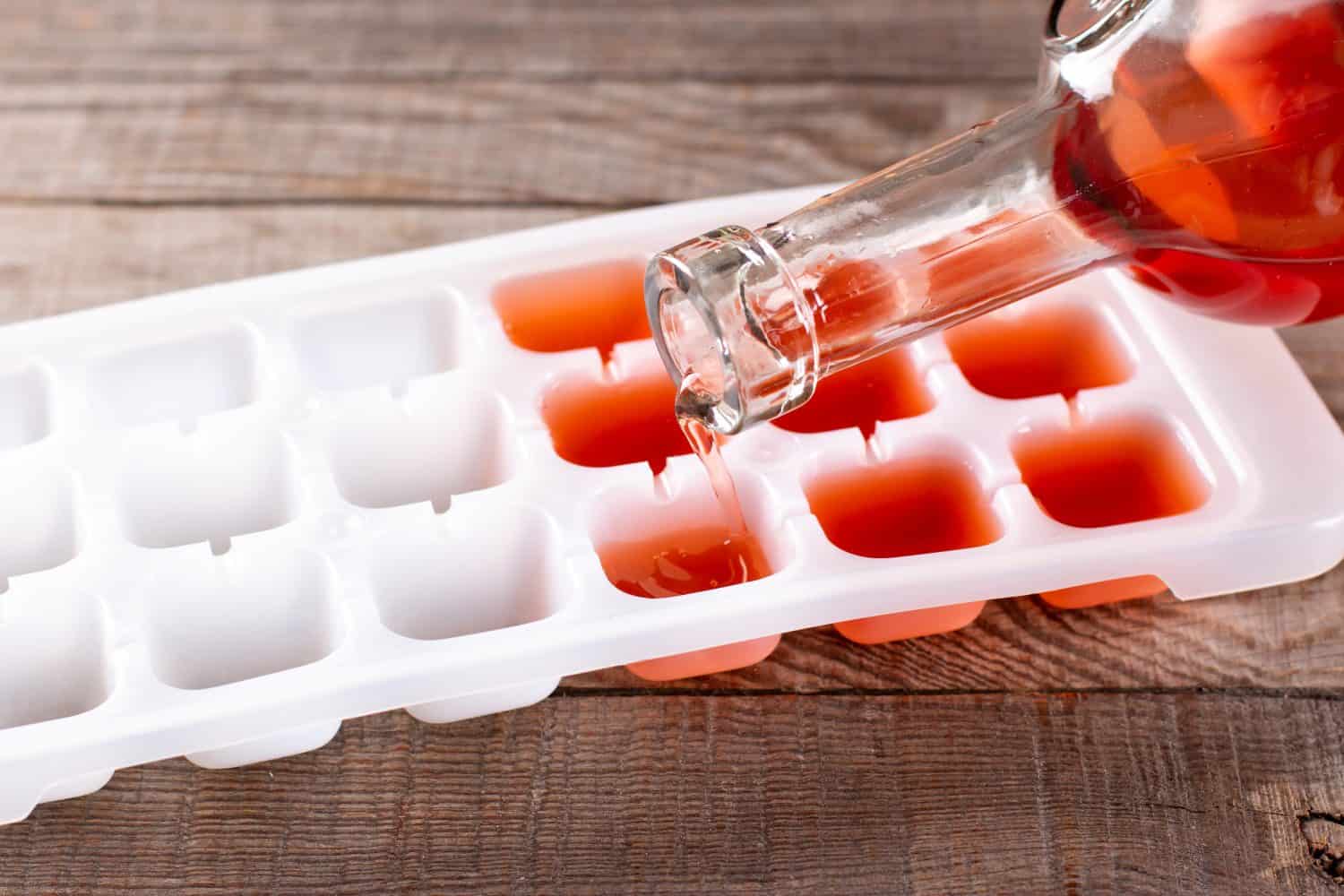
If your recipe calls for wine but you’re not planning on drinking the whole bottle, save your leftover wine in an ice cube tray in the freezer so it’s handy whenever you need it.
Keep Berries Fresh

Berries are contaminated with mold spores and bacteria, which can lead to them going bad within a couple of days of taking them home from the supermarket. As soon as you bring them home, wash the berries in a mixture of one part vinegar to three parts water before drying and storing them. This will kill off the mold and bacteria and keep them fresh for much longer.
Get More Juice From Citrus Fruits
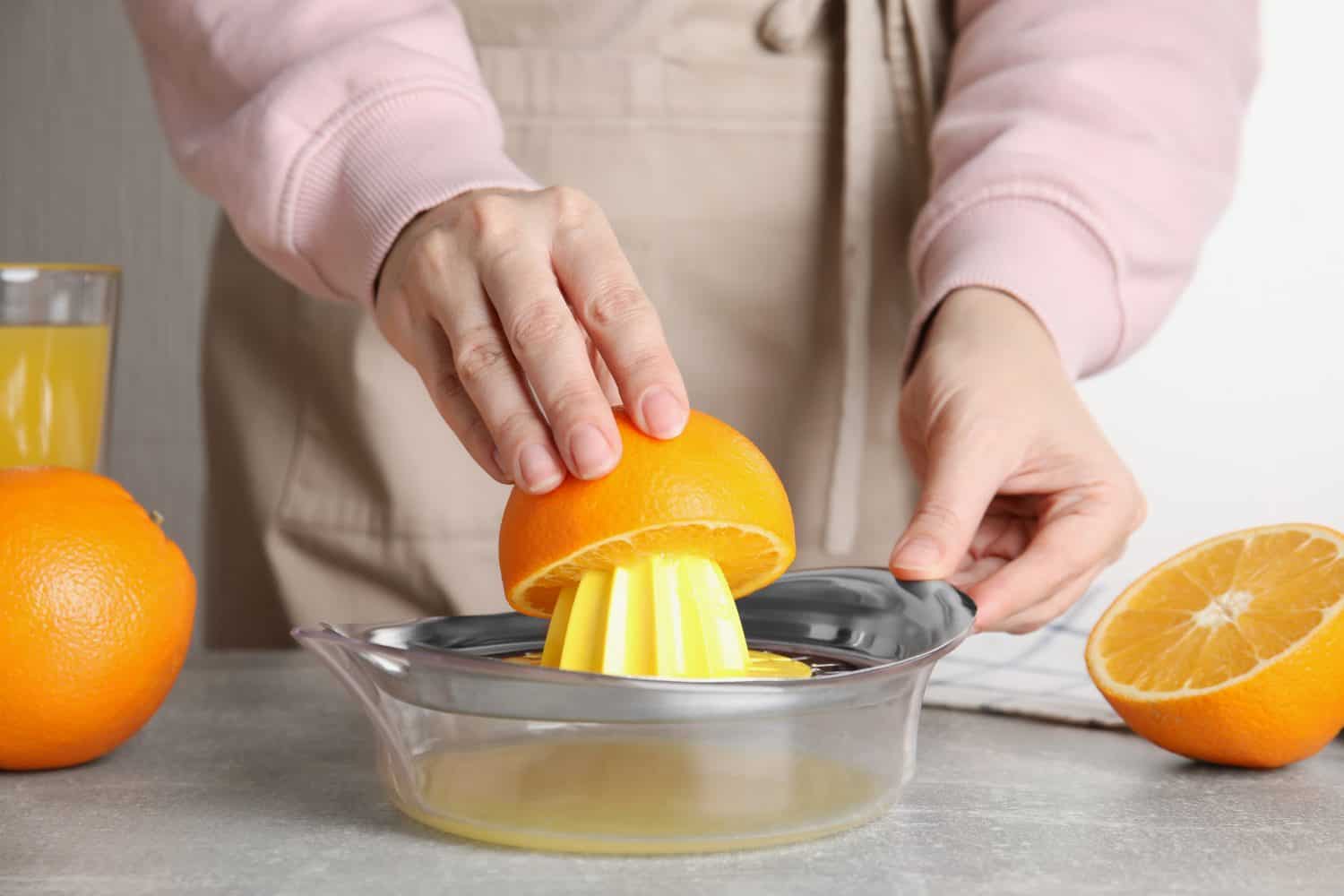
Instead of just slicing right into a citrus fruit you’re planning on juicing, “prime” it by firmly rolling it between your palm and the counter. This will help break up some of the juice “pearls” (technically called vesicles) inside the fruit, making it easier to juice.
Quickly Soften Butter
If you need soft butter for cooking or baking but it’s still cold, use a box grater to grate the butter and it’ll be ready to go. This is also a great trick for baking biscuits.
Prevent Your Cutting Board From Slipping
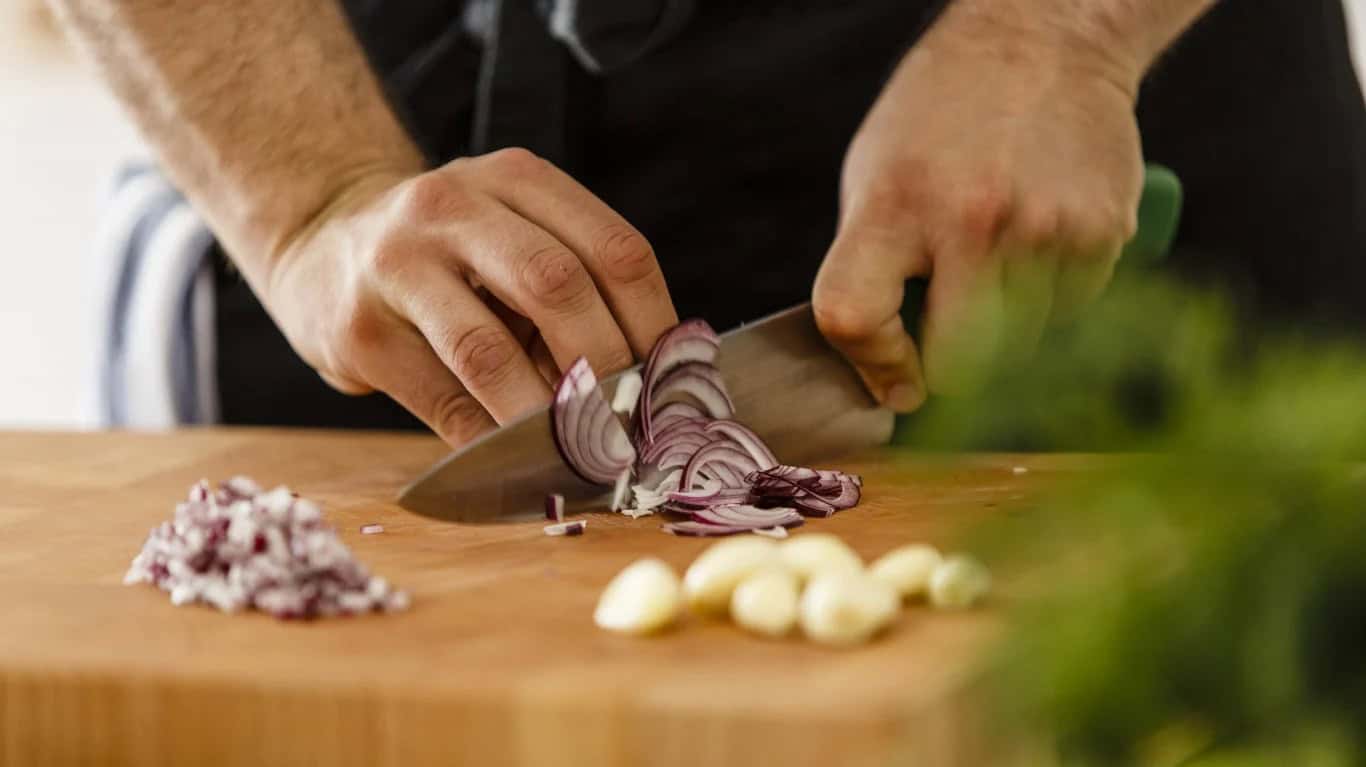
It can be dangerous if you’re trying to slice something (especially a roast) and your cutting board is slipping around. To stop this from happening, wet a paper towel and place it between the cutting board and the counter.
Easily Peel Boiled Eggs
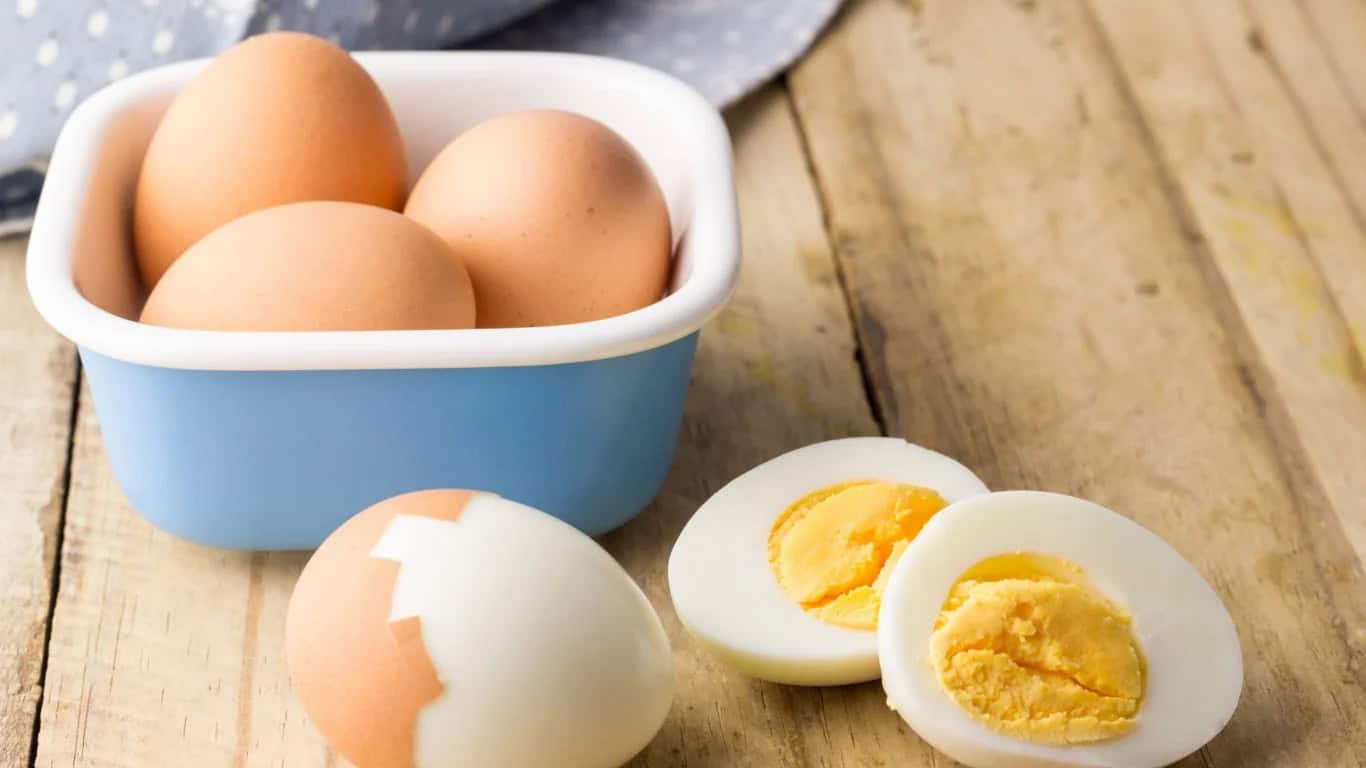
There are plenty of hacks out there for peeling hard-boiled eggs, but the easiest way to guarantee that the peel will be easy to remove starts before you even add the eggs to water: mix a teaspoon of baking soda into the boiling water. The alkaline baking soda will help loosen the shell from the white, making it easier to peel. One other tip is to peel the eggs in a bowl of ice water.
Clean Cast Iron Skillets With Coarse Salt
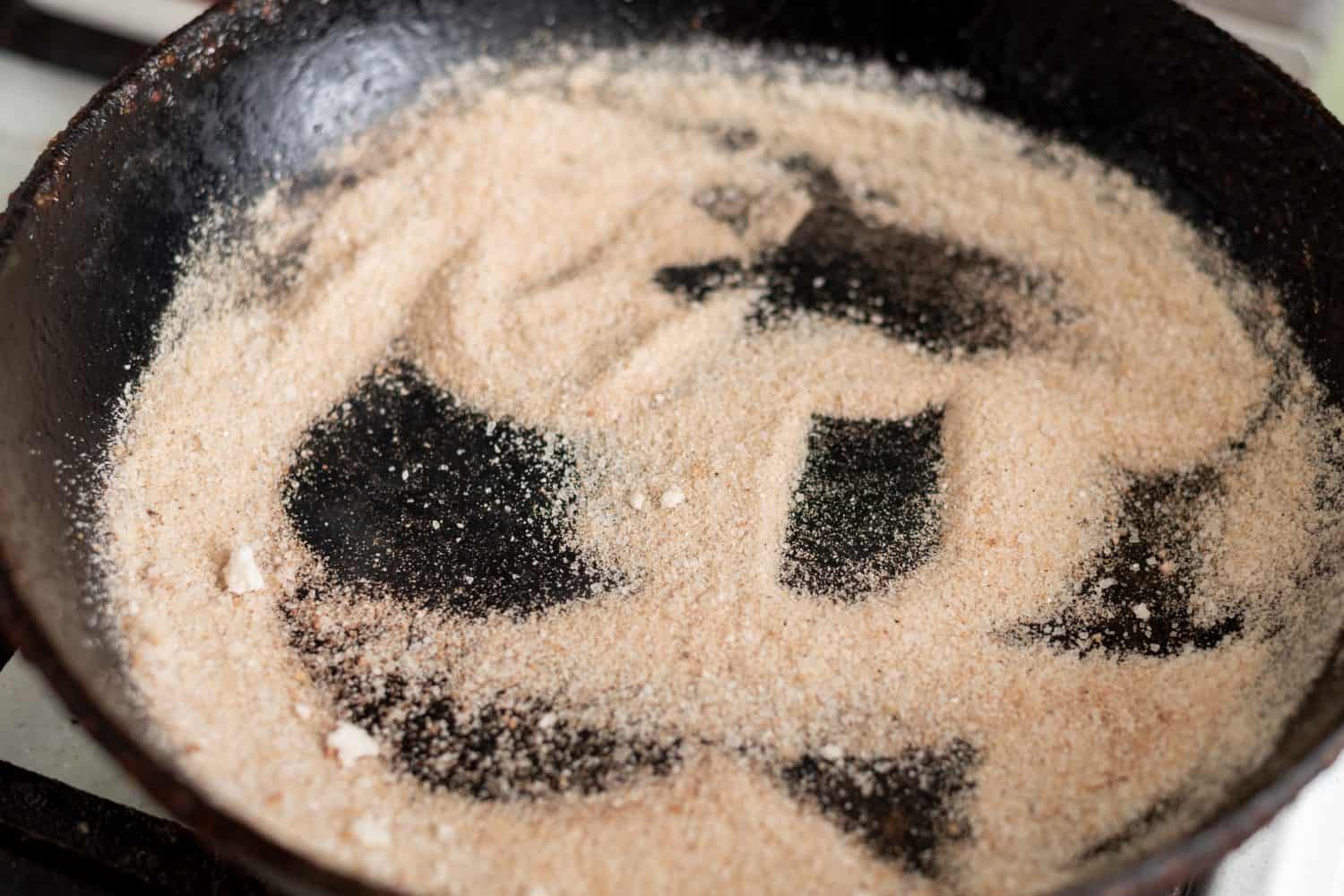
When your cast iron skillet is still warm, scrub it clean with coarse salt (which acts as an abrasive) and a paper towel before rinsing it with hot water and drying it. Contrary to popular belief, it’s actually OK to use a little bit of dish soap in a cast iron skillet if it’s very well-seasoned but you should try to avoid it unless it’s absolutely necessary.
The Best Way to Make Bacon
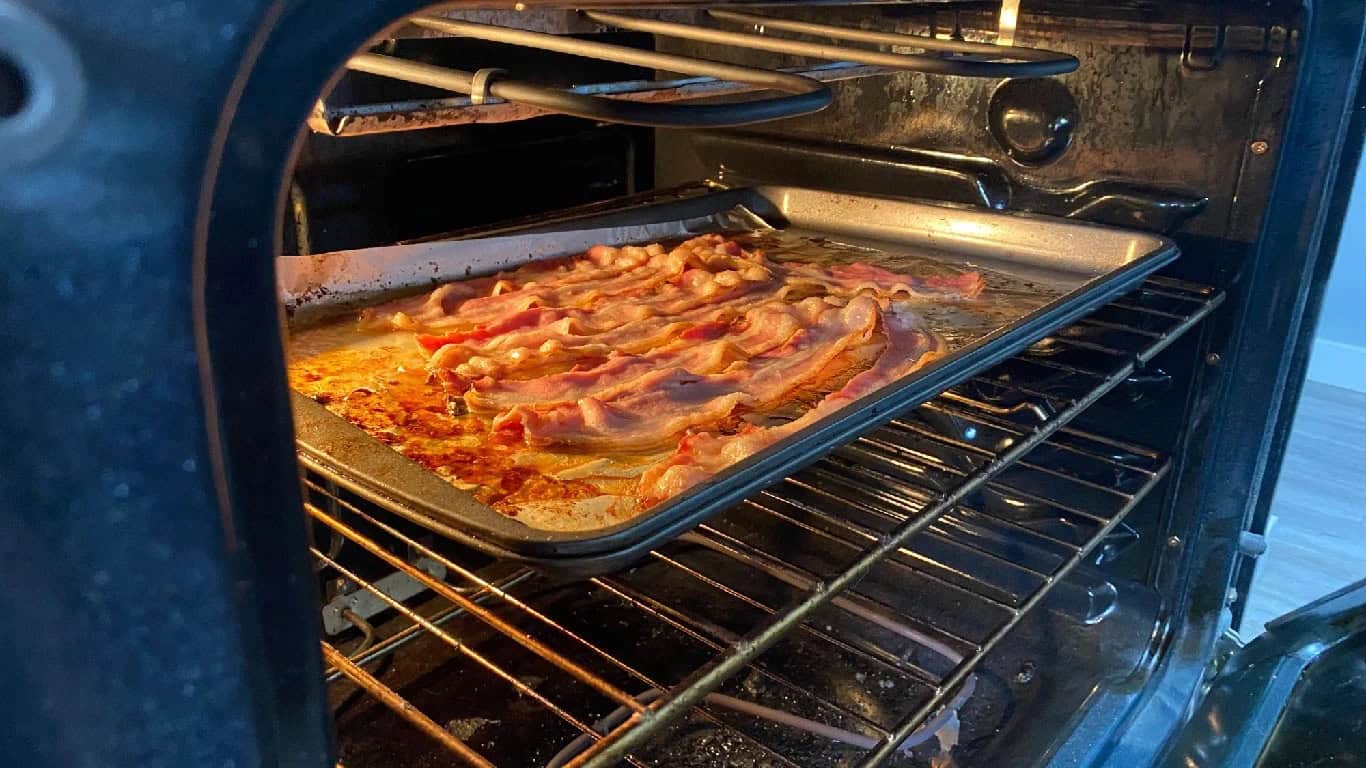
If you’re still cooking bacon in a pan, there’s a better way to do it: Line it up on a foil-lined baking sheet, place it in a cold oven that you’ve turned on to 350 degrees, and bake until crispy. This way, the bacon will cook evenly and clean-up is super easy.
Stop Onion Tears
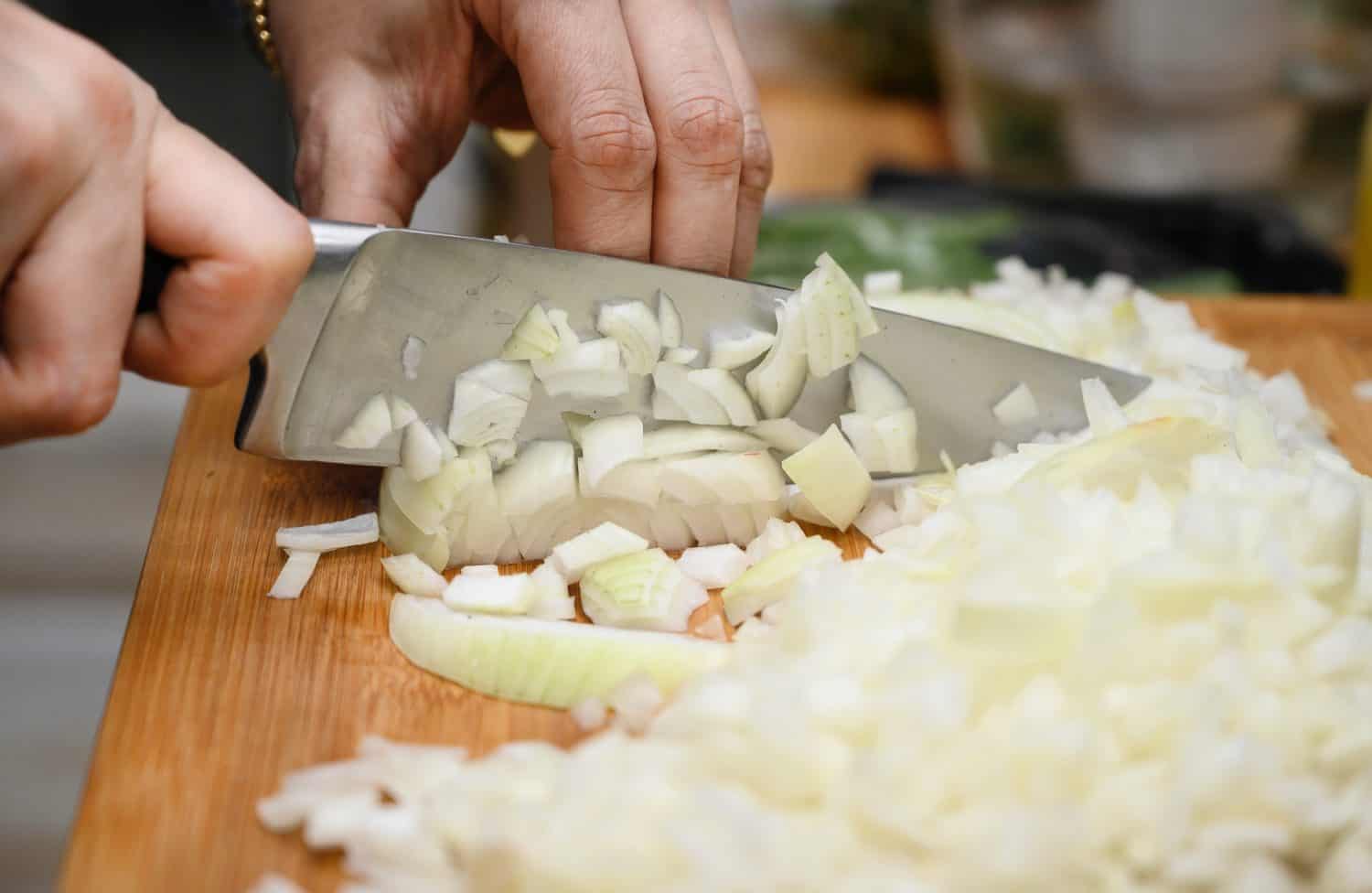
Eye irritation while chopping onions is one of the most annoying things you’ll encounter in the kitchen. It’s impossible to completely prevent it from happening, but one way to cut down on the release of the eye-irritating compounds is to put the onion in the freezer for 10-15 minutes before chopping it.
Shuck Silk-Free Corn

By microwaving a full ear of corn – with the husk on – for a couple of minutes before peeling, the corn will easily slip free of the husk, silk and all.
Use Dental Floss to Cut Soft Foods
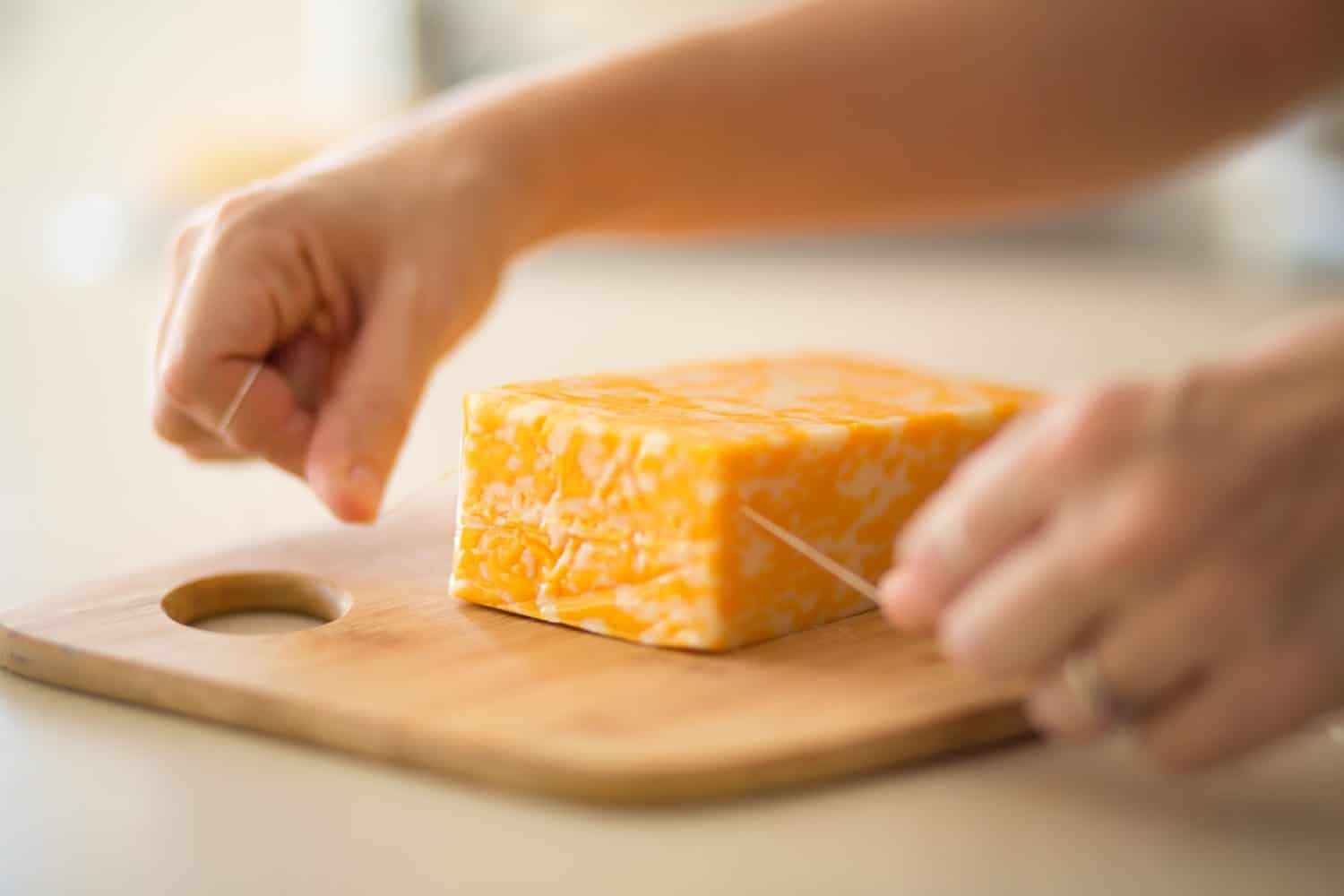
Cheese, cakes, dough, and other soft foods can be easily squished by cutting them with a normal knife. Try using dental floss instead for an even cut every time.
Keep Brownies From Going Stale
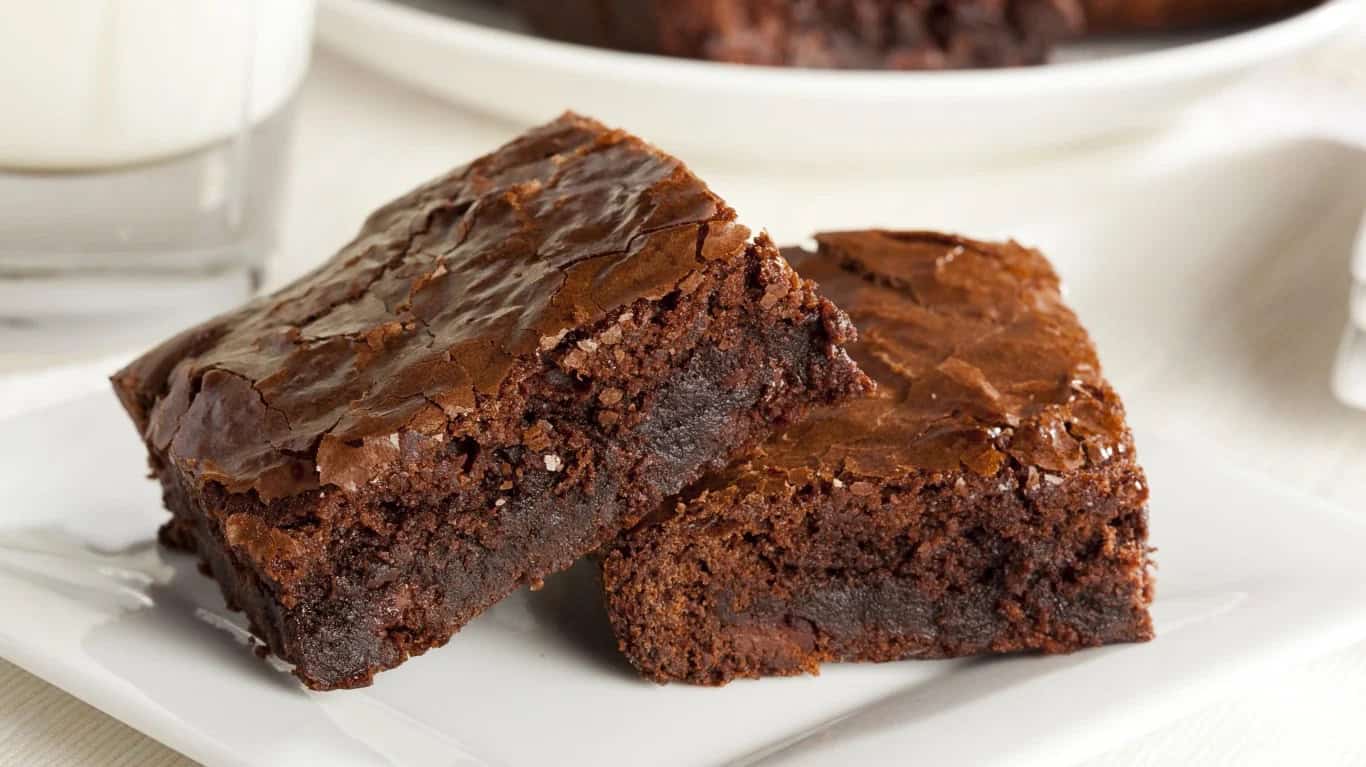
Brownies quickly go hard in the fridge, so put a slice of bread in the container to keep them moist.
Easily Grate Soft Cheese
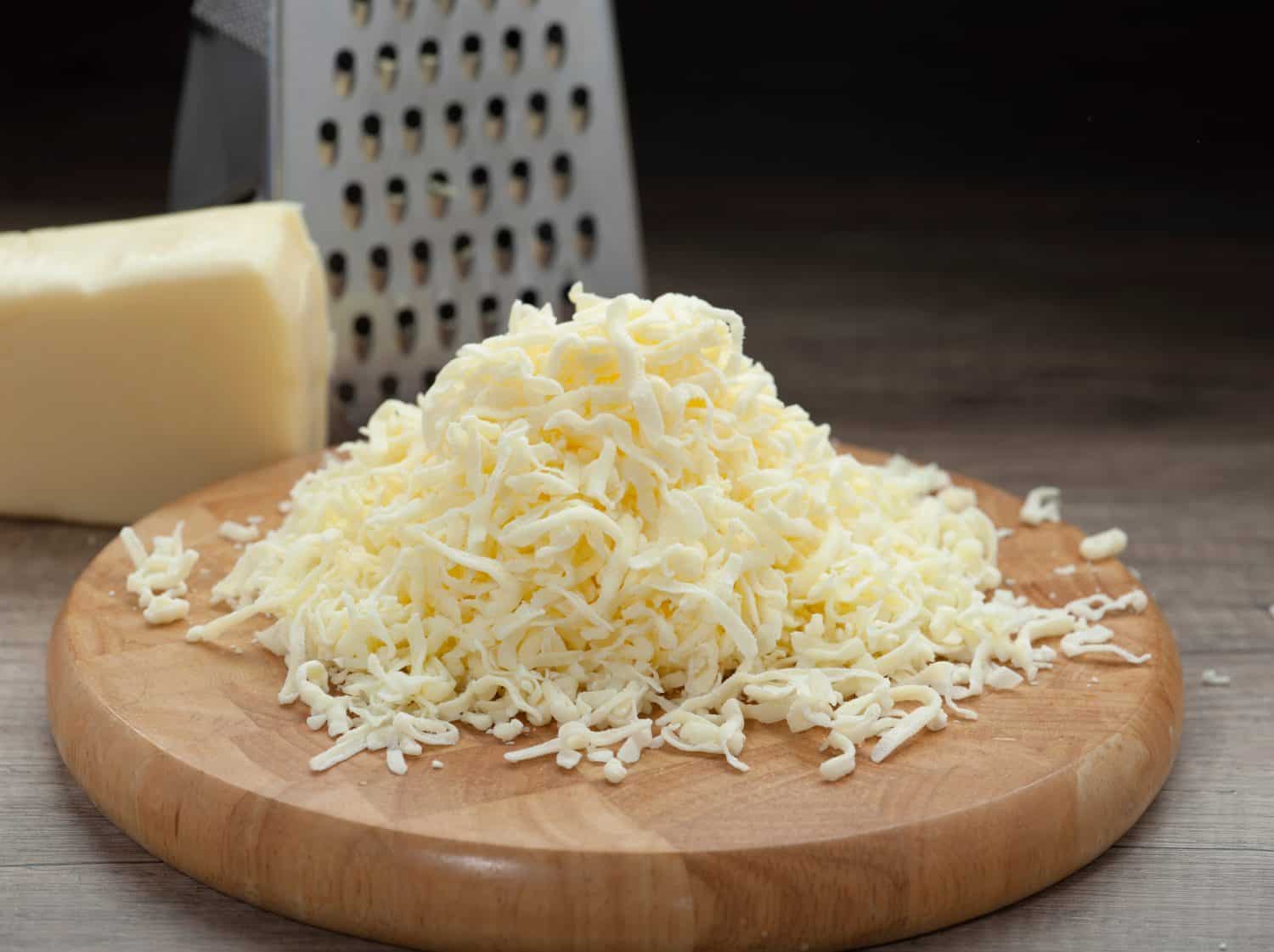
If you’re having trouble with cheese (like mozzarella for pizza) getting mushy when you’re trying to grate it, just put it in the freezer for 15 minutes first to firm it up.
Make Perfect Poached Eggs
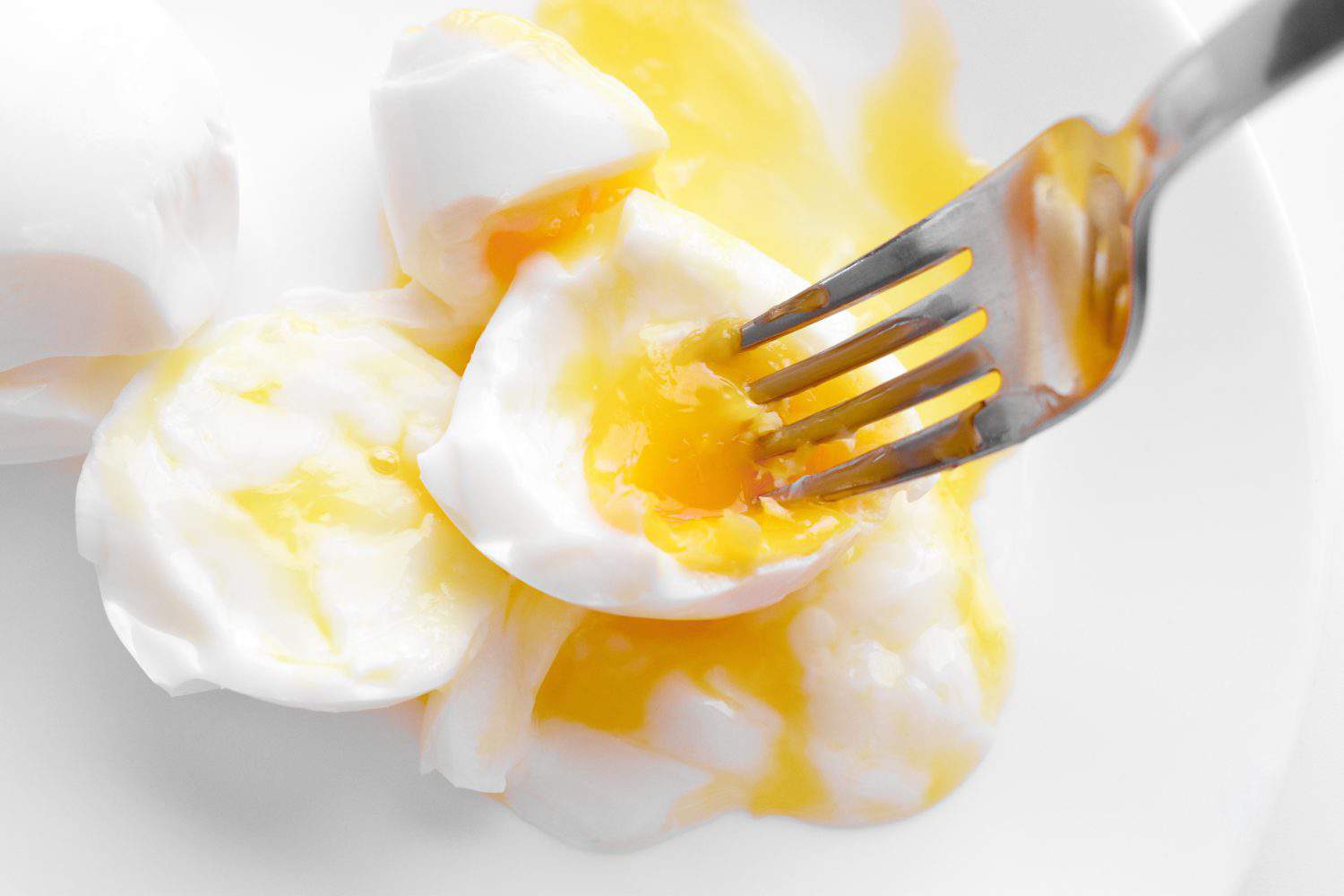
Add a teaspoon of white vinegar to simmering water before adding your eggs while poaching them. This will help the whites firm up quickly, helping them to keep their shape.
Perfectly Reheat Pizza
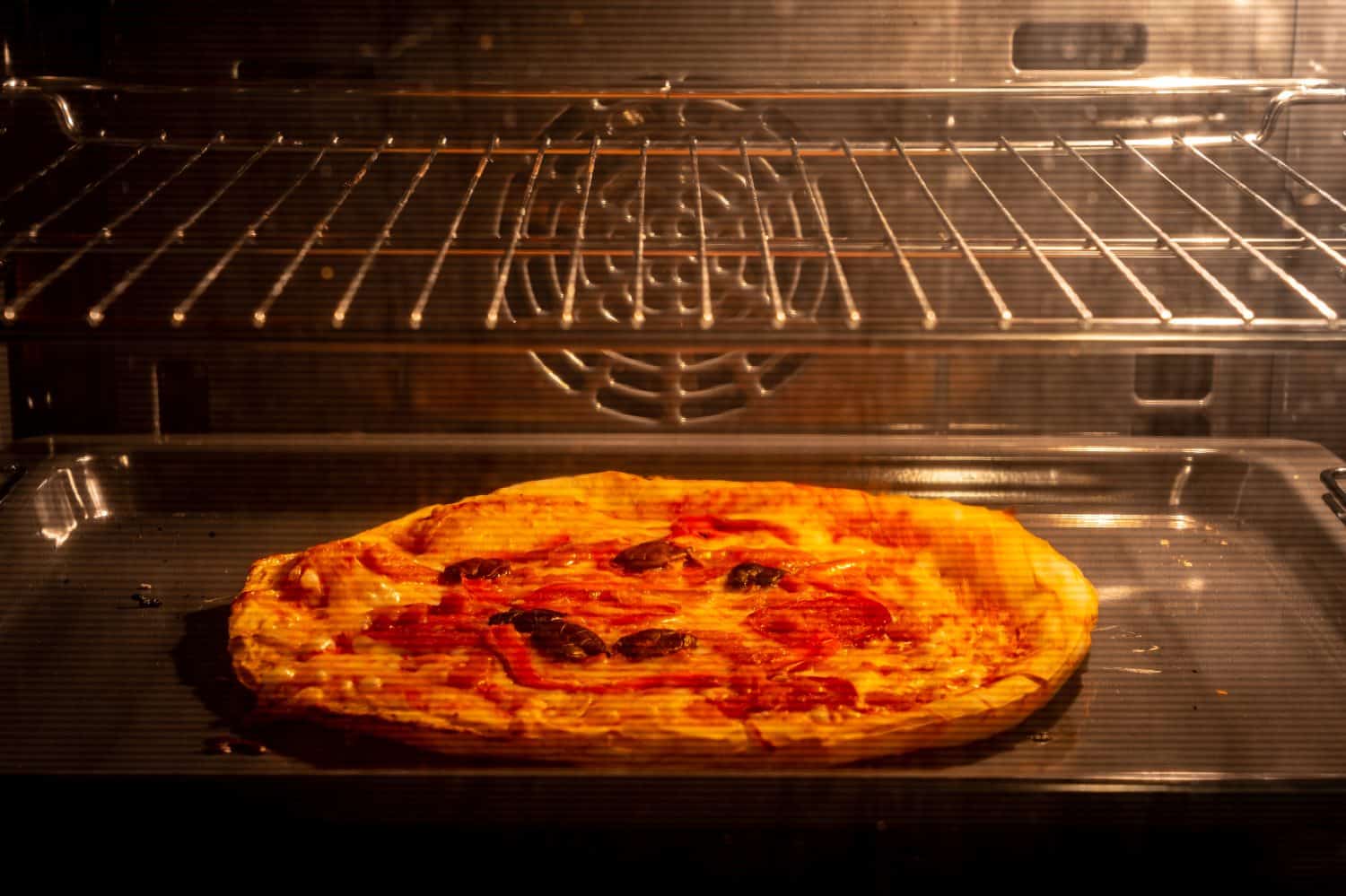
In order to make pizza as good as new, first take it out of the fridge to bring it up to room temperature. Place a baking sheet (or pizza stone, if you have one) into a 450-degree oven and let it get hot. Then place the pizza directly onto the hot pan and let it heat for a few minutes until hot and bubbly.
Easily Peel Tomatoes
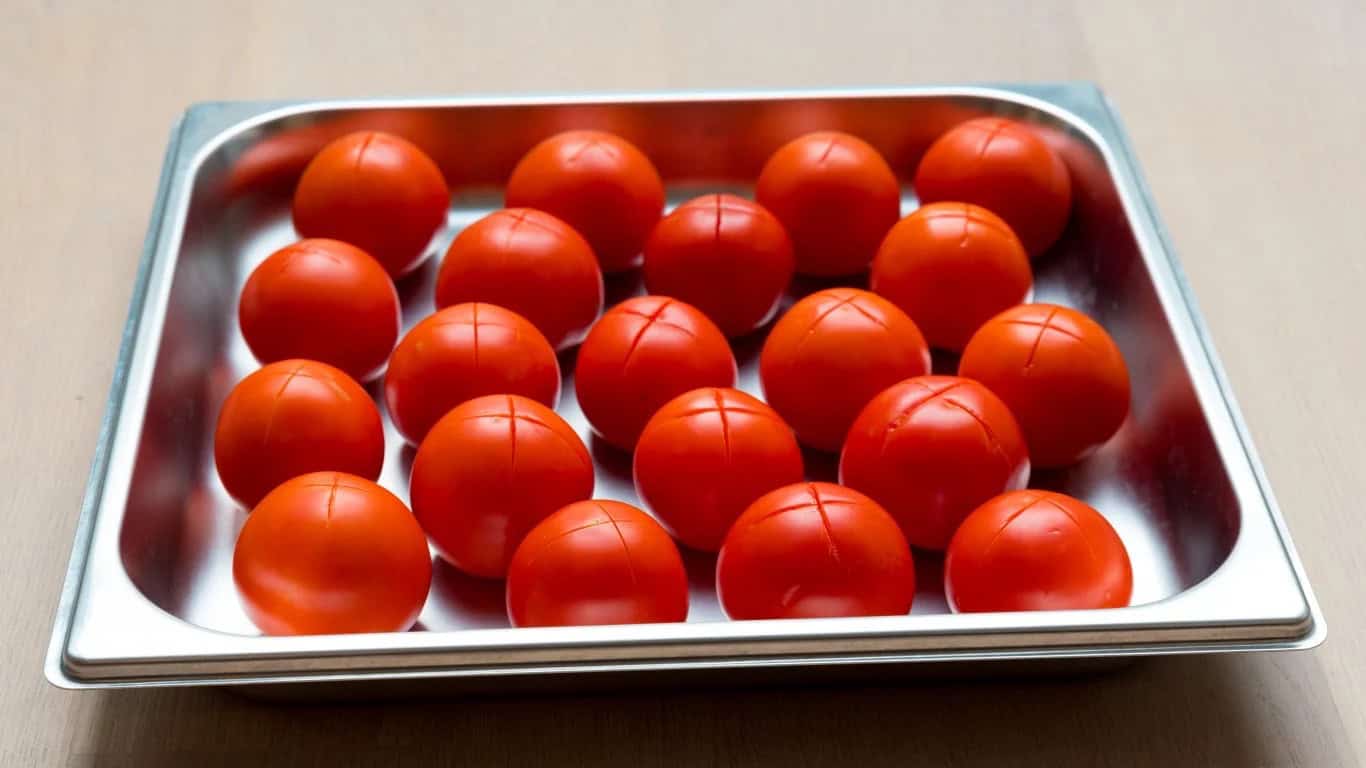
If you need to easily peel tomatoes, cut a small “X” into the bottom of the tomato, blanch it in boiling water for 30 seconds, and transfer it to a bowl of ice water. The skin should come right off.
Treat Fresh Herbs like Flowers
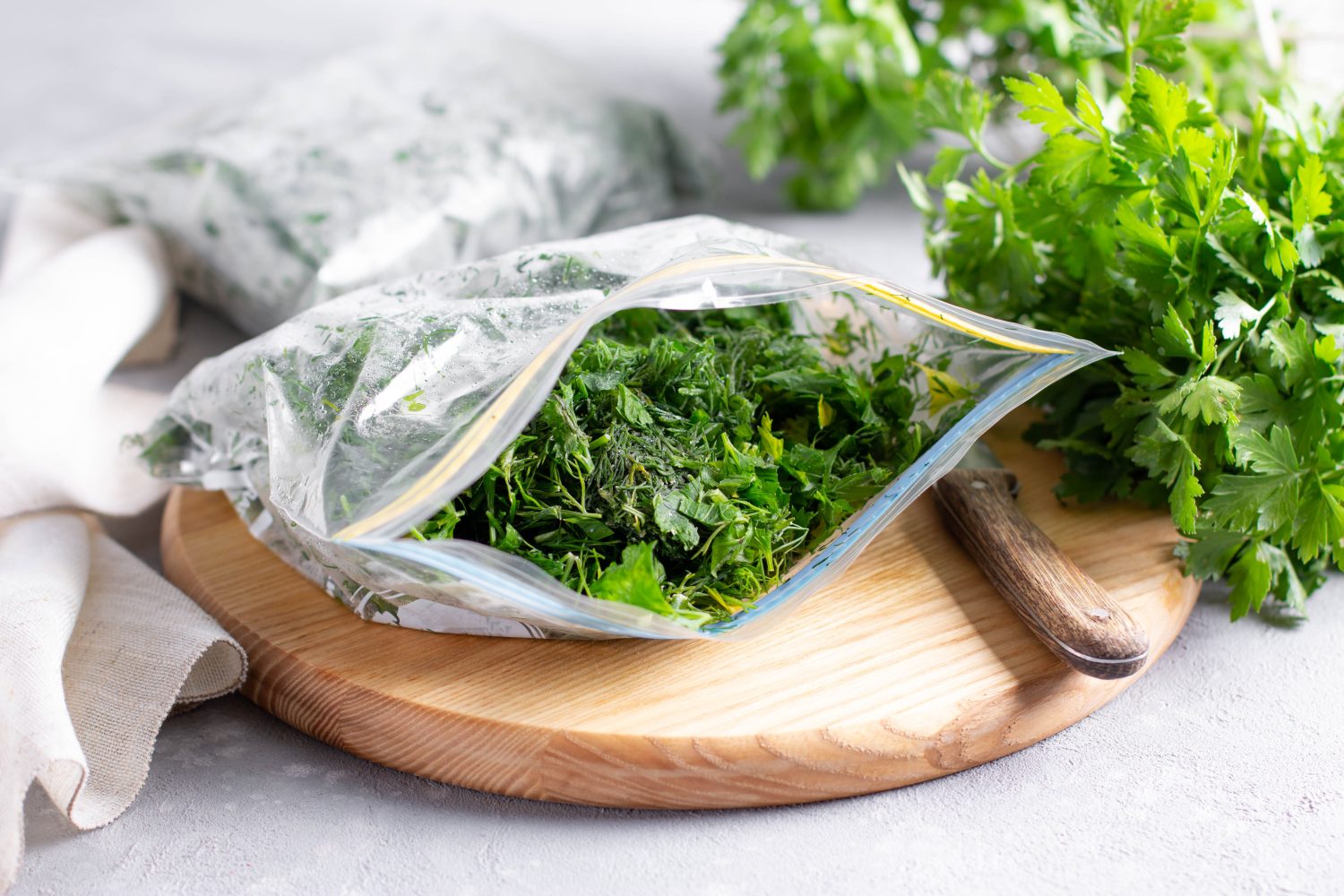
To keep herbs fresh, think of them as flowers: place the stems in a small jar of water, put a plastic bag over the top to prevent them from drying out, and store them in the freezer.
Reuse Your Pickle Juice
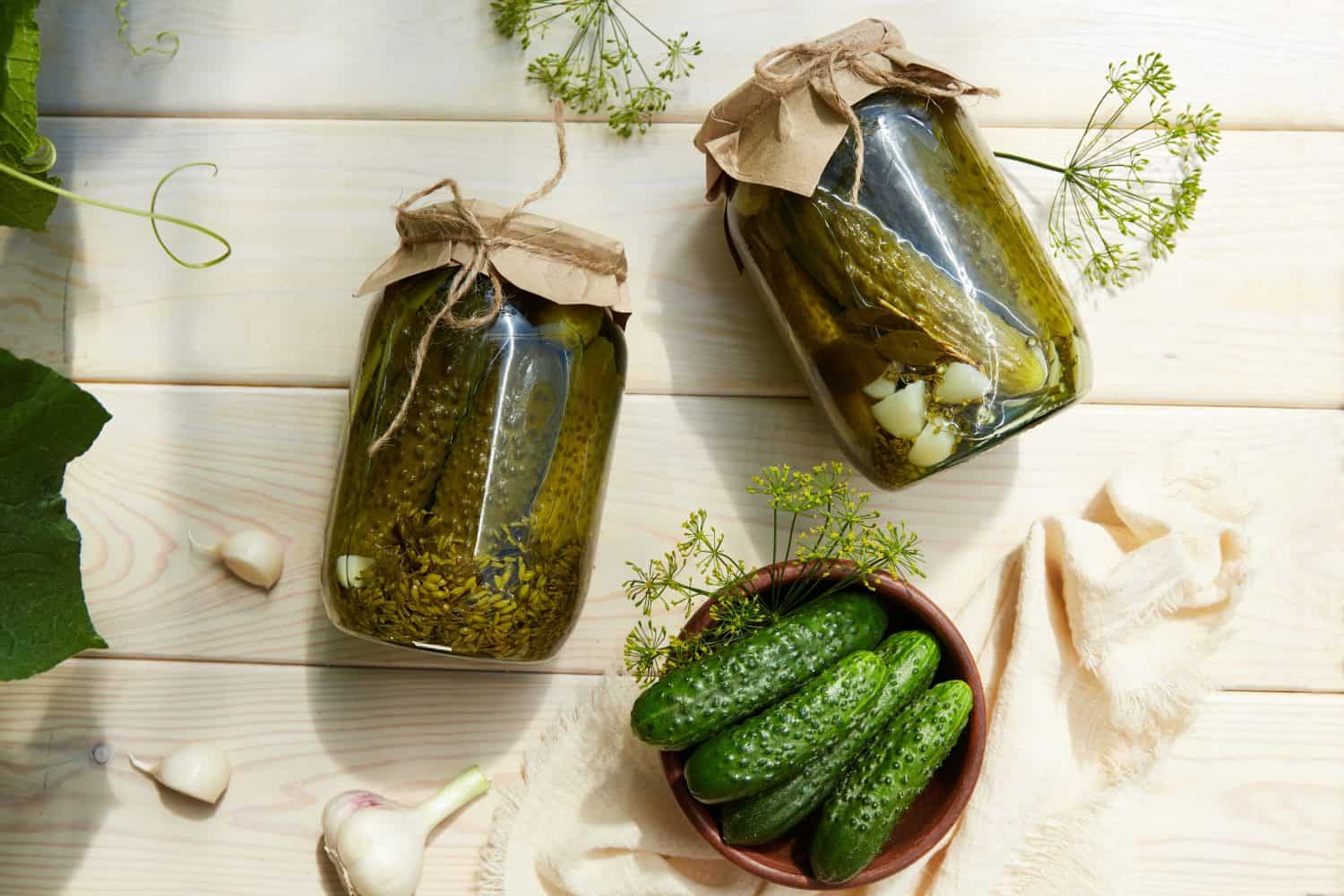
There’s always pickle juice left in the jar, so keep it handy. It has lots of other applications, like marinating chicken or pork chops, livening up potato salad or countless other dishes, poaching fish, or reusing it to pickle other veggies. It also makes a great whiskey chaser! (If you’re looking for more money-saving tricks, these were perfected during the Great Depression.)
